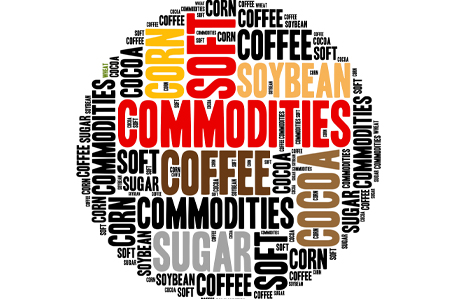Hedge Funds Match Record in Selldown on Soft Commodities
Category: Grains, Miscellaneous, Sugar
 (Agrimoney) – Hedge funds approached the end of 2016 on a bearish note in agricultural commodities, cutting bets on price rises for a fourth successive week, as they stretched to a record a selling spree in softs such as cocoa and coffee.
(Agrimoney) – Hedge funds approached the end of 2016 on a bearish note in agricultural commodities, cutting bets on price rises for a fourth successive week, as they stretched to a record a selling spree in softs such as cocoa and coffee.
Managed money, a proxy for speculators, cut its net long position in futures and options in the top 13 US-traded agricultural commodities, from corn to sugar, by 37,457 contracts in the week to last Tuesday, analysis of data from the Commodity Futures Trading Commission regulator shows.
The selldown reduced the net long – the extent to which long bets, which profit when values rise, exceed short holdings, which benefit when prices fall – to the lowest in two months.
And it included bearish positioning in both grains, in which hedge funds returned to a net short position, as well as in New York-traded soft commodities, which also include cotton and sugar.
Less sweet on sugar
Indeed, hedge funds cut their net short in softs for a ninth successive week, a bearish run matched only once, in late 2013, on CFTC data going back a decade.
The selling spree has slashed by more than 175,000 lots, to 224,588 contracts, the managed money net long in softs.
And it reflected in part a further selldown in raw sugar, prices of which have been hurt by growing expectations of a return to world production surplus on the horizon.
“The market is still anticipating a deficit in first half of 2017, but is also looking further ahead, anticipating that the rise in prices this year will have stimulated production by the 2018 season,” Sucden Financial said.
“The abolition of European Union sugar quotas in October next year will also have an impact as European producers vie with each other to increase production and compete for export market share.”
Rabobank said that in the latest week, “managed money cut their net long position to reach 138,442 lots – less than half of the September record – on prospects of a more balanced 2017-18 global supply and demand”.
‘Favourable climate’
Hedge funds also cut their net long in arabica coffee futures and options for a seventh successive week, matching the longest selling streak in a decade, and amid easing concerns of a supply squeeze.
The latest selldown came in a week in which Conab, Brazil’s official crop bureau, upgraded its estimate for domestic arabica coffee production in 2016-17 by 2.08m bags, to 43.38m bags, a recovery of 35% year on year.
Meanwhile, weather conditions have proved benign for the progress of Brazil’s 2017 arabica crop.
“So far, the climate has been favourable to the development of the 2017-18 coffee harvest in Brazil,” said Silas Brasileiro, executive president of Brazil’s CNC producers’ group, adding that the conditions had spurred “expectations of good productivity”.
Rabobank also flagged the dent to price prospects “since it became clear that the Colombian main crop would be enormous”.
‘Biggest surprise’
Meanwhile, in grains, including the soy complex, hedge funds returned to a small net short, thanks in part to selling in Chicago soybeans and wheat, but particularly in corn, in which they raised their net short by more than 16,500 lots.
Indeed, the extent of bearish betting in corn was the “biggest surprise” of the CFTC data, said Terry Reilly at broker Futures International, adding that “the net fund position deviated little from trade estimates for soybeans, soft red winter wheat, soymeal and soyoil”.
The positioning appears to enhance the clash of hedge funds with index funds, which are thought poised to increase their net long positions in many grain contracts substantially in a once-a-year portfolio reweighting process, which starts next week.
“The index fund rebalancing starting January 9 reportedly will trigger 60,000-100,000 new corn longs [contracts] and 30,000-50,000 new wheat longs,” said Richard Feltes at RJ O’Brien.
Still, managed money headed to the end of 2016 with a far less bearish position on grains than the net short of approaching 280,000 lots it started the year with.
Protein push
In Chicago livestock contracts, however, hedge funds extended a buying spree which has fuelled a recovery in futures, helped by stronger-than-expected demand, with lean hog futures rebounding by more than 60%, on a spot contract basis, from a 14-year low reached in October.
Live cattle futures have recovered 26% from a six-year low hit in October too.
“Fed cattle prices have staged an impressive rally since fall on robust beef demand, increasingly current front end cattle supplies and a dramatic shift in beef trade flows,” said Paragon Economics and Steiner Consulting.
“While the cattle feeding business was quite difficult during the spring and summer, feedlot operators continued to stay aggressive in marketing animals and that aggressiveness is now paying off.”




